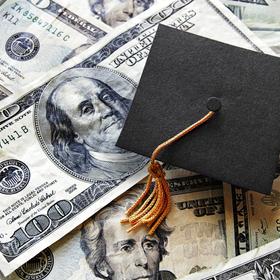Money always talks. When you pay cash for something, no matter what that something is, you will get a better deal. Or the vendor will offer a cash discount. Or perhaps you can negotiate better terms. Nowadays the same thing applies to getting into private school. Assuming that your child offers everything the school is looking for, if the school knows that you do not need any financial assistance, you can be virtually assured of acceptance. Why is that? What's changed?
This video reports on the ways that the pandemic has affected schools.
The Perfect Storm
World events have a direct impact on private school endowments. They can shrink as much as 20-30%, even more, when the stock market becomes a bear market. You and I can see how a school's finances are impacted by reviewing their tax returns, the Form 990. Form 990 is the tax return not for profit organizations file each year. Most schools file at the end of their fiscal year which typically is June 30.
Added to the market conditions are the vast numbers of jobs that have been shed as companies have folded or downsized. That means there are fewer parents able to afford private school without at least some financial assistance. Another factor is that many parents who were counting on sending their children to private school are scaling back their spending. The result is that there are fewer applicants for many schools.
As COVID-19 struck the United States in March 2020, sending the nation into lockdown, worry about the fate of private schools was high. The Cato Institute
Smaller schools are generally the ones most impacted.
The top-tier schools are feeling minimal impact as they still have a huge demand for places and relatively strong finances. They can make the adjustments needed to weather the storm. It is the schools that have much smaller savings accounts or endowments and a smaller alumni base on which to fall back which are really feeling the pinch. These schools will jump at the chance to accept a child who does not need financial aid but who offers everything the school is looking for.
Schools worldwide have been severely impacted by the pandemic as this Unicef report illustrates.
COVID-19 has hit low-cost private schools (LCPS) especially hard.
"But wait a minute!" you are thinking, "Won't these schools offer a lower standard of teaching, fewer activities and sports, and so on if they are feeling the pinch? Why would I even want to consider sending my child to a school that might have problems." That's the point. Most schools will perform the financial nips and tuck needed to get them through this rough patch. They will put off painting a building or replacing a roof before they will make cutbacks in program areas. So, that should not be a worry.
This video offers a panel discussion about how schools have been affected by the pandemic.
The need for financial aid is greater.
The bottom line is that more families need financial aid while the money available for financial aid has become tighter. Most schools still consider financial aid a top priority. They simply must fill as many places as they can or face some serious financial consequences. Consequently, they will put off other expenses in order to have the funds available to help as many students as they possibly can.
Another consideration is that the pandemic has affected private schools much differently than other world events such as financial downturns. Most private schools managed to keep in-person instruction going, while public K-12 schools switched over to online instruction. That increased demand for places in many private schools. With that demand came more requests for financial assistance.
The more responsibility of not requiring financial aid.
The tight financial aid pool combined with the demand for places means that if you can afford private school on your own, your chances of getting your child admitted for 2010-2011 are better than they have been in years. When you go for the admissions interview, make sure that you point that out. If you don't need financial aid, step to the front of the line.
If you are in a position in life where you can support the school's programs with a major gift, this is the time to do it. Consult your financial adviser. Speak with the school to determine its priorities. Your munificence will be greatly appreciated.
Questions? Contact us on Facebook. @privateschoolreview















